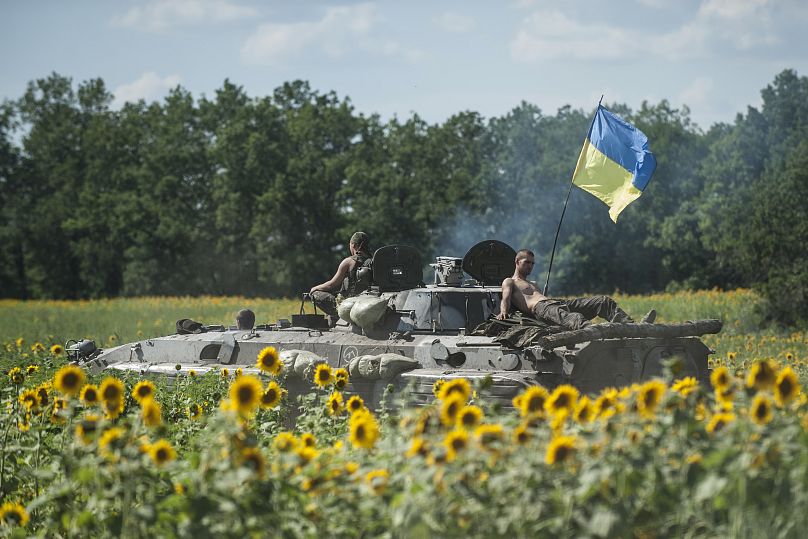Award winning filmmaker and journalist Stefano Liberti, joins us for this episode of The Star Ingredient to talk about how globalisation and financialisation can pose a challenge to the worldwide food system.
It seems a logical premise: Produce enough food for the global population and no nation should fall victim to a succession of food crises. But in a world where globalisation and the financialisation of our food system can determine where our food comes from and how much we pay for it, it’s the poorest countries that end up counting the cost.
Award winning filmmaker and journalist Stefano Liberti, who joins us for this special episode of The Star Ingredient, has spent much of his career grappling with these issues. Specifically: how market speculation on food impacts low-income countries who have abandoned their food sovereignty.
“I believe that in the last 25 years, food has become a commodity,” Liberti says.
“The food system has become more and more global, so food is produced all across the world and the value of food is not related to the way of production, but to different factors that are external to the food production.”
Russia, Ukraine and the grain crisis
Throughout this podcast, we’ve touched on how the Russia-Ukraine war has caused grain supply shocks in African and Middle Eastern countries reliant on food imports. These two countries, Russia and Ukraine, are often labelled the world’s bread basket owing to the high volumes of wheat and corn they produce. But war disrupting Ukraine’s ability to export these grains, doesn’t tell the whole story.
Food commodities relate to agricultural products or raw materials typically sold in bulk quantities and traded in international markets, much like gold or oil. These commodities can be purchased or traded and their price is determined by factors like supply and demand, weather and energy costs. But, like other commodities, their price can also be subject to financial speculation.
“When you buy grain, you don't buy grain on the spot, but you buy grain on a future contract. You buy grain in the stock exchange at the price that it is supposed to be in the next few months, six months, for example,” Liberti explains.
In February of last year, the outbreak of war saw a rush of investors into these futures contracts which, Liberti says, produced effects on the real market.
“People in the stock exchange bought future prices, but the real price increased immediately… So, there was this paradoxical effect that there was a lot of grain, but prices were going up, going up very, very, very fast,” he says.
Trading food commodities on futures contracts
This idea, trading food on futures contracts, isn’t anything new.
Some of our earliest farmers and traders exchanged proto-futures by agreeing to trade crops before they were even harvested.
In the 19th century, futures contracts for agricultural products were standardised in the United States by the Chicago Trade Commission. In those days, it was a way for farmers to secure prices, plan ahead and protect themselves from adverse climate events while ensuring traders had a consistent supply of crops.
But in the 1990s the US moved to deregulate these futures markets by introducing measures that let traders hold larger positions in the market and allowed for the creation of new financial instruments not subject to regulatory oversight.
The repeal of Glass-Steagall which had previously kept commercial and investment banking separate, also allowed banks to engage in a wider range of financial activities, including agricultural commodity trading.
Taken together, the net result of these measures was an influx of investors into food markets who had little to do with agriculture.
“Traditionally you have some speculators that are part of the market, but in the last few years, the speculators have become the majority in these markets,” says Liberti.
“So they are betting… they are using it not as a way of organising the market, but actually, as a way of making profits.”
Possible solutions
So, who ends up as the loser in this situation? Typically it’s the low-income countries who have abandoned food sovereignty because their own food producers cannot compete with the prices of those abroad that benefit from state subsidies.
Instead, they purchase food on the global markets where prices are normally cheaper. This despite the fact that it makes them more vulnerable to price shocks caused by war, climate events or speculation.
In order to put the global food system on a more even keel and protect food security in low-income countries, Liberti believes that we need to rewind the clock and better regulate financial actors in food markets.
“There are two ways to change the situation. The first one is to regulate the food exchange on the global stock exchange markets,” he says.
“They have been deregulated, deregulated since the beginning of the nineties, in the 20th century. So starting to regulate again and preventing financial actors and commercial banks from betting on food would be a first step,” he adds.
The second way, he believes, is to build food production systems in low-income countries in order to help them regain their food sovereignty.
Indeed, it is an aspiration shared by the cultivators of indigenous, overlooked foods like fonio, sorgho and bambara groundnut that we have already met over the course of this series.
To hear more from Stefano Liberti, listen to the full episode at the link above or wherever you get your podcasts.
If you’re hungry for more recipes and stories about indigenous African ingredients, listen to the first 5 episodes of our series.
The podcast The Star Ingredient was funded by the European Journalism Centre, through the Solutions Journalism Accelerator. This fund is supported by the Bill & Melinda Gates Foundation.


















